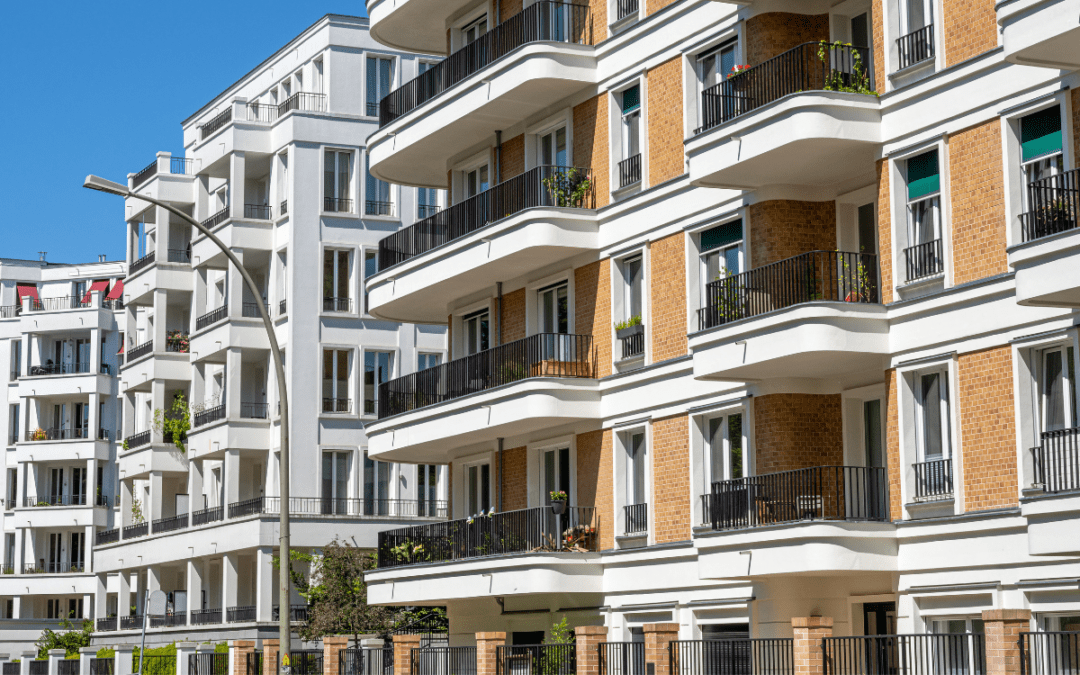To build more rental housing, the removal of GST will apply to new purpose-built rentals, meaning apartment buildings, student housing, and senior residences built specifically for long-term rental accommodation.
The Canadian Home Builders’ Association (CHBA) said the federal government’s move addresses a long-standing issue that has prevented the construction of more rental housing for decades.
The impact will be “immediate”
High-interest rates have further eroded the viability of purpose-built rental projects this year, shelving much-needed new housing supply. This elimination of GST should help get those projects back on track, said the national organization.
“This is something we have called for for a long time and is a measure that will continue to be necessary for many years to come to ensure much more rental housing supply is built. Purpose-built rental is an important part of the housing continuum and a must to be among the 5.8 million homes that Canada needs to build over the next decade to make up the housing deficit,” said CHBA CEO Kevin Lee.
“The business model for purpose-built rental has been broken for decades just with the taxation system around it. We saw it in terms of purpose-built rental starts over the past 20, even 30 years. There just hasn’t been enough, and it’s because the model didn’t work. So being able to change the taxation regime around purpose-built rental will make a big difference, especially right now because we’ve seen with high-interest rates a lot of rental projects that would have gone forward just being shelved.”
Lee said the impact will be immediate, and the construction of more purpose-built rental supply will have an impact on the rents people are paying.
“It certainly should because one of the huge issues we have in Canada is, unfortunately, it’s now well-documented, is we have a massive housing shortage of all forms of housing and all forms of tenure. Vacancy rates are incredibly low, and that, of course, drags up rent, and in the homeownership market, it drives up prices. So we need more supply of all forms. By building more purpose-built rentals, we’re going to hopefully see less tight markets, and that should get rental rates down to a more reasonable level moving forward.”
3.45 million homes needed by 2030 to restore affordability
The CMHC said recently that Canada needs about 3.45 million additional housing units by 2030 to restore affordability in the country.
In a Twitter post, Kendal Harazny, co-founder and principal of Wexford Developments in Calgary, said: “This is huge. I estimate we will build 1000 units that were on hold solely due to this.”
In an interview with Real Estate Magazine, Harazny said every developer has been dealing with massive cost increases in the last 24 months.
“With interest rates tripling on construction debt, it’s chipped away at the feasibility of pretty much any rental project in almost any market in the country,” he said. “Now, there were projects here and there that still worked for a variety of reasons, but as a whole, the industry has ground to a halt because you can’t build an apartment building for a reasonable return.
“So when you’re talking about decreasing costs from 3.6 to 5.0 per cent, that’s enough to move the needle on a significant number of projects that are in the pipeline across the country.
“If you speak to anyone in the industry, there are developers all over the country who have projects ready to go that are on hold simply because the numbers did not work. And I think there are probably hundreds of projects that will now immediately go because the numbers do work. This makes up for the massive increase in costs and interest rates we’ve seen, and so I do think you’ll see this program spark construction across the country.”
“While the GST has been removed, it’s not like we all of a sudden have increased our capacity of trades in the country. “
– Kendal Harazny, Wexford Developments
But Harazny said the concern he has is he doesn’t think the country has the trade base to handle this sudden demand.
“Before this announcement, on projects we were doing all over Western Canada, we were still struggling to find trades and get reasonable bids. While the GST has been removed, it’s not like we all of a sudden have increased our capacity of trades in the country. I think that will be the biggest bottleneck,” he said.
Harazny said a typical building cycle for a project is four to five years from start to finish and is very much dependent on the municipality.
He said about 400 residential units are ready to roll for Wexford, and the rest need to be revisited and re-underwritten. The big unknown will be construction costs, given the new surge in demand.
Jennifer Keesmaat, founding partner of Markee Developments in Toronto, said in a tweet that the forgiveness of the GST on rental housing will do two things: tip some new housing developments that have been put on ice due to high-interest rates back into construction, which will lead to more supply and incentivize some developers to build rental housing, instead of condos.
She said the federal decision is significant and potentially “the beginning of a sea change.”
Chris Guerette, CEO of the Saskatchewan Realtors Association, said the federal move is a step in the right direction towards improving housing supply challenges as the province’s residential housing industry faces a significant gap in housing inventory to accommodate future growth projections.
“Inventory levels continue to be a concern across all segments of our housing continuum, and we know this type of rebate can work in our province,” she said.
“Similar support is also needed for first-time homebuyers so that renters who want to can achieve their dreams of homeownership.”
– CHBA statement
With the elimination of GST on purpose-built rental at the federal level, it will now be very important that provincial governments follow suit with their own taxes on purpose-built rental, said the CHBA.
“Also very critical is the need for municipalities to reduce their development taxes on not only purpose-built rental but all housing (including for homeownership). Municipal development taxes have gone up some 700 per cent over the past two decades, with taxes comprising as much as 30 per cent of the price of a home today. This needs to change,” it said.
“With some financial relief to now enable more rental housing to be built, similar support is also needed for first-time homebuyers so that renters who want to can achieve their dreams of homeownership.”
In a report, Rachel Battaglia, an economist at RBC Economics, said that with rental vacancy rates at a two-decade low and Canada’s rental housing stock sitting in a severe shortage, any measure to boost rental apartment construction is certainly welcome.
“The five per cent GST on new rental construction (including land value and construction costs) discouraged developers from pursuing purpose-built rental apartment projects. In fact, developers have long preferred to build condominiums over rental housing projects on the basis of higher profitability and the possibility to reinvest proceeds into subsequent construction projects,” she said.
“Since tenants aren’t obligated to pay the five per cent GST on top of their regular rent, developers are typically left holding the tax bill. GST on condos, on the other hand, is generally baked into the purchase price of the unit, allowing the builder to offload the tax burden onto the new homebuyer.
“While the removal of GST on rental construction projects will improve their financial viability — and, with it, hopefully spur more development — it isn’t likely to lower rents in short order.”
Battaglia writes this won’t be a silver bullet, “More policy action — at all levels of government — will be needed to really move the needle on rental supply and affect rent. This includes modernizing zoning by-laws to accommodate high-density development, streamline the permitting prices for new construction, and ensure other fees, taxes, and policies are in line with the broader goal of expanding the rental housing stock in Canada.”

Mario Toneguzzi is a contributing writer for REM. He has more than 40 years of experience as a daily newspaper writer, columnist, and editor. He worked for 35 years at the Calgary Herald, covering sports, crime, politics, health, faith, city and breaking news, and business. He now works on his own as a freelance writer for several national publications and consultant in communications and media relations/training. Mario was named in 2021 as one of the Top 10 Business Journalists in the World by PR News – the only Canadian to make the list.















Please find out is it GST or HST (Ontario RST component included in Harmony) on Ontario buildings?
Well it’s going to be very interesting to see how the government administers this. Immediate impact, I’m not convinced. So a builder makes a big order at a lumberyard and says it’s for a rental project, so no GST.
Meanwhile he’s building a condo project (which frankly should be GST exempt too)
I can just see the abuse. How about bsmt suites or rentable laneway homes or garden suites? The government will likely settle for a huge GST refund at end of project with all kinds of documented proof. Great just a whole lot more administrative work, nah, just another boondoggle.
It makes no sense to have NOT included for sale condos. Another government move that is far to late and only because of political pressure. It is also time for provincial government to follow suit and stop bickering about the BOC and Federal government and start reining in some of there own taxation. The BC government is incredibly hypocritical in this while still hammering the consumer at the pumps and everywhere else. Some provincial governments like Alberta have been responsible in this and the federal government could take a lesson from them instead of grandstanding and politically posturing.
How about government scrap hst altogether! We already pay income tax from our income. HST is double dipping!!
These tax’s (FST)were first implemented after WW1 and were supposed to be temporary.
Now look where we are OVERTAXED! And government overspending